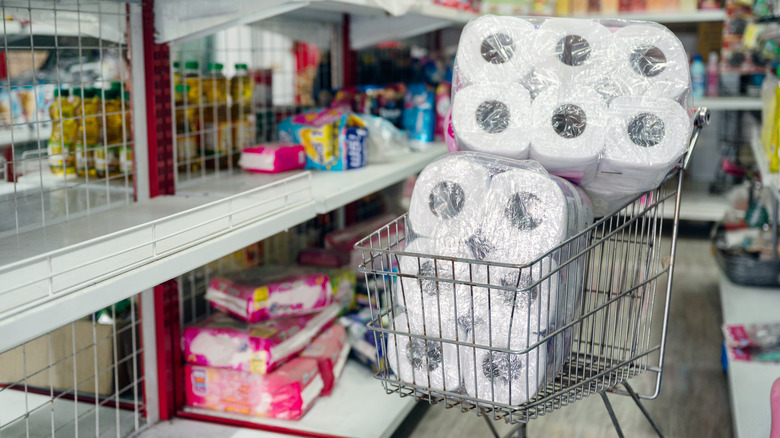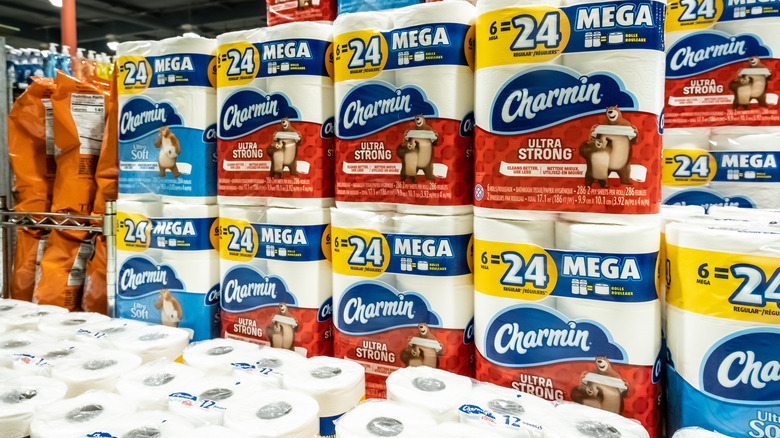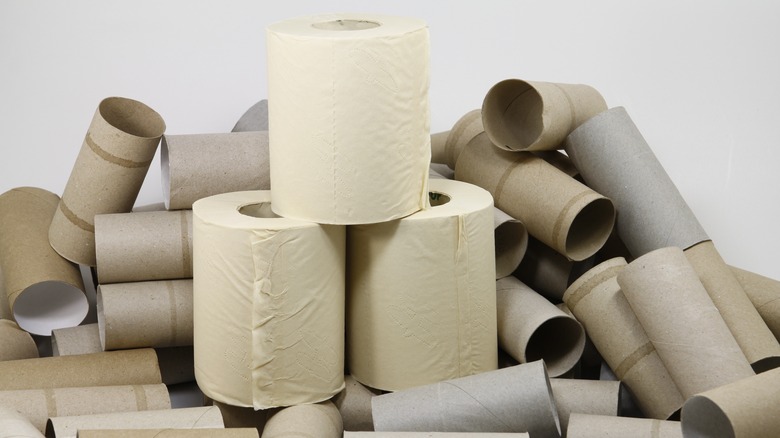You May Want To Rethink Buying These Popular Brands Of Toilet Paper
Most of the things we do and use daily are either exacerbating or lessening the impacts of climate change. The food we throw away, the plants we grow, the energy sources we choose, and the things we buy are just some of the things that influence our environmental impact. Toilet paper, though not thought of too much, is one example of a simple household item that can have serious negative impacts on our planet. The good news is that this doesn't apply to all brands, and you can easily find out if the specific product you choose is good or bad for the environment.
Charmin, Cottonelle, and Quilted Northern are some of the largest tissue brands in the U.S. Produced by Procter & Gamble, Kimberly-Clark, and Georgia-Pacific, they are part of the many household and personal items that are created through the unsustainable production practices of these manufacturing companies. If you want to live more consciously and have a better impact on the environment, seek out smaller, more sustainable toilet paper brands.
Why you should rethink buying these brands
The environmental impact of a type of toilet paper depends on several factors in its life cycle, like what raw materials are used and how it is produced. Traditional toilet paper is typically made from virgin wood pulp, which requires trees to be cut down and then packaged for sale in excessive or non-recyclable materials, which further contributes to environmental problems because it means more waste. Recycled toilet paper reduces the demand for those natural materials, is cleaner, and is typically packaged better, making it much more environmentally friendly.
The big three manufacturers, and brands by Costco and Amazon Basics, received F ratings from the Natural Resources Defense Council (NRDC) for their production practices. Procter & Gamble has always been known for its full reliance on virgin forest fiber, and therefore deforestation, while Kimberly-Clark has even regressed in its attempts at a more sustainable process in the past few years by discontinuing the recycled version of Andrex that it used to offer and using less recycled wood pulp now than it did before. Most of these companies have been specifically identified to harvest from the Canadian boreal forest, causing significant loss to this great resource.
Some toilet paper brands to buy instead
When shopping, always read product labels and do your research so you can choose brands that align with your values. Two things to look out for are recognition for their sustainability efforts and minimal, eco-friendly packaging. Who Gives a Crap, Trader Joe's toilet paper, Everspring from Target, and Seventh Generation all scored As from the NRDC for their commitment to using recycled materials for their tissue products. Bim Bam Boo is another good brand to note because they see bamboo as the more sustainable option for personal use since it is more widely available and doesn't come with all the toxic chemicals of traditional tree-based toilet paper.
The environmental impact of a certain toilet paper product also depends on how it's disposed of. To do this in a more sanitary and environmentally responsible way, try to reduce the amount of toilet paper you use in general as well as the amount you flush at a time. Additionally, consider other options like bidets, as they will help you reduce your usage of both water and toilet paper. Toilet paper tablets, as opposed to disposable wipes, are also a better choice when you're on the go because they are biodegradable and versatile.


